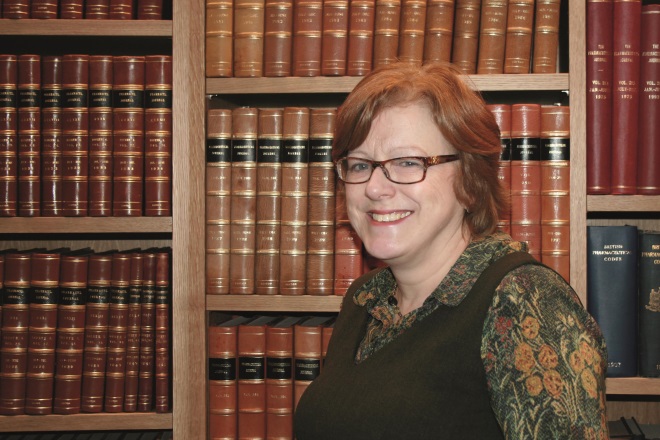
Shutterstock.com
More than half of pharmacy service users do not receive advice advice when collecting prescription medicines, despite a requirement in their contracts to do so, a study suggests.
Researchers at the Leicester School of Pharmacy, De Montfort University and the School of Healthcare, University of Leeds, found that 58.1% of service users did not receive any advice when collecting new prescriptions. The figure was significantly higher — 74.5% — for those collecting repeat prescriptions.
The Community pharmacy contractual framework stipulates that pharmacists should ensure patients receive medicines safely by:
- providing information and advice to the patient on the safe use of their medicine or appliance;
- providing when appropriate broader advice to the patient on the medicine, for example its possible side effects and significant interactions with other substances.
David Branford, former chair of the RPS English Pharmacy Board, said: “These results are a wake-up call for the pharmaceutical profession to create a more consultative environment within community pharmacies so that the provision of information and advice becomes the norm, rather than the exception, and is fully embedded within the prescription dispensing service.”
Over a six-month period the researchers questioned 1,206 service users outside 29 pharmacies in an English Midlands city.
The results, published in
Health and Social Care in the Community
[1]
, showed that just 141 of the 1206 interviewees asked for information about their medicines — of those, 94% said they received it.
But, among the remaining 1065 people questioned, there was a wide variation in the degree of unsolicited advice given. When all the pharmacies surveyed were considered, the proportion of interviewees reporting unsolicited advice ranged from 14% to 63%.
Peter Rivers, lead author of the study and reader in pharmacy practice at Leicester School of Pharmacy, said the reasons pharmacy staff do, or do not, give advice when prescriptions are dispensed are complex.
“Some explanations have been well documented in the literature, including lack of awareness of the public of the role of pharmacy staff as advisors, lack of trust of pharmacy staff in terms of understanding symptoms and illness compared with a doctor, competing priorities within pharmacies because they offer health care as well as being retail businesses, and that the public may judge a ‘good’ service by qualities such as speed of dispensing, convenience, comfort and cleanliness rather than aspects directly related to health care. The type of prescription — the pharmacological properties of the medicine — may also be a factor that influences advice-giving practice.”
He added: “Irrespective of the reasons, we believe the results of our survey act as a ‘warning bell’ that pharmacy staff should be offering greater value as highly accessible healthcare professionals within the multidisciplinary team.”

Source: MAG/RPS
Sandra Gidley, chair of the English Pharmacy board, warns the study comes over as another attempt to knock community pharmacists who are, on the whole, doing a great job for patients.
But Sandra Gidley, current chair of the English Pharmacy board, warned the study lacked clarity about whether patients were regular attendees.
“If this was the case,” she added, ”there would be no need for extensive advice. It comes over as yet another attempt to knock community pharmacists who are, on the whole, doing a great job for patients”.
The conclusions reached by the authors are also disputed by RPS England, who said: “These findings are extrapolated from a small local study which asked people who just left a pharmacy, if they were given any information about the medicine they collected. The survey does not look into the circumstances and the individual reasons why people went to the pharmacy.
“Pharmacists are at the heart of our communities and most pharmacists have a long-lasting relationship with people that they see on a regular basis. This reduces the need to go over their medication on each visit. Although this study highlights long established issues around utilising pharmacists, it makes a great deal of assumptions and generalisations without any input from pharmacists themselves.”
Rivers remained unconvinced by suggestions that those who felt unhappy with their pharmacy service were more likely to agree to being interviewed.
“Although this is possible,” he said, “it is unlikely.
“We can’t rule out the possibility that some did speak to the interviewer because they were less satisfied, but it is also true that some also feel good about their pharmacy staff and want to sing their praises. We should also bear in mind that this was a ‘yes’/‘no’ response survey. There will have been people who said ‘yes’ to having received information or advice, but the quality or extent of advice was not questioned by our researchers. So, even if the pharmacy staff just said. ‘Take one tablet three times a day’, the participant would probably have responded to this with a ‘yes’.
”So, in this sense, looking at the survey as whole, we are likely to be portraying the best possible picture,” he concluded.
- This article was amended on 8 June 2017 to clarify the findings of the present study, which revealed that more than half of pharmacy service users do not receive advice when collecting prescriptions, rather than that more than half of pharmacists do not give advice to patients who are collecting prescriptions, as was originally reported.
References
[1] Rivers PH, Waterfield J, Grootveld M et al. Exploring the prevalence of and factors associated with advice on prescription medicines: a survey of community pharmacies in an English city. Health Soc Care in the Community 2017;00:1–13. doi: 10.1111/hsc.12451


